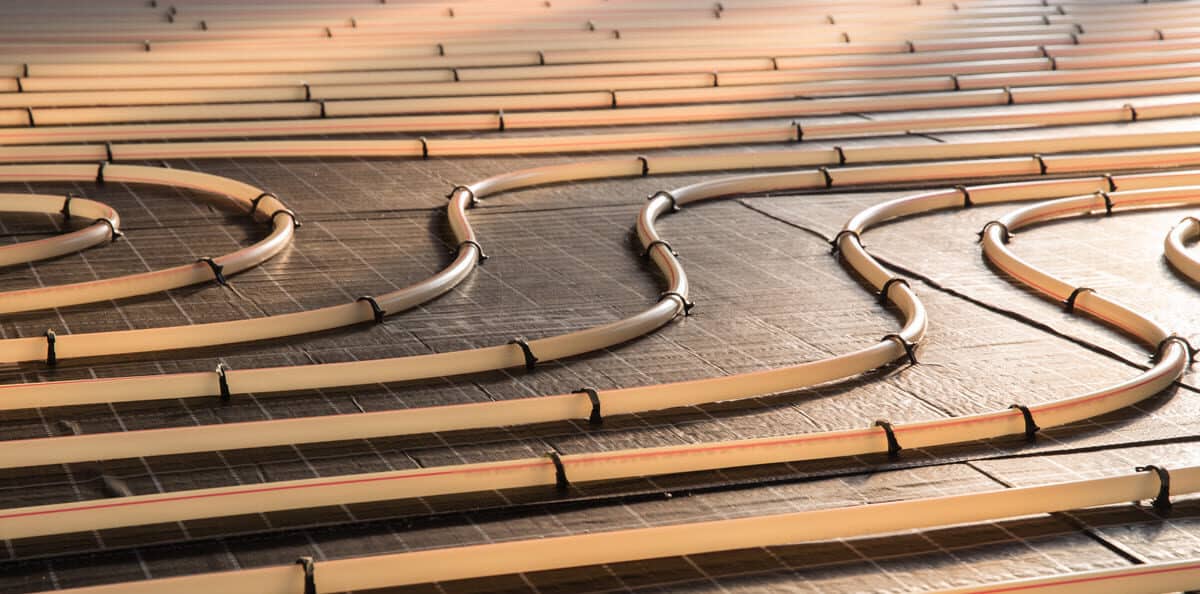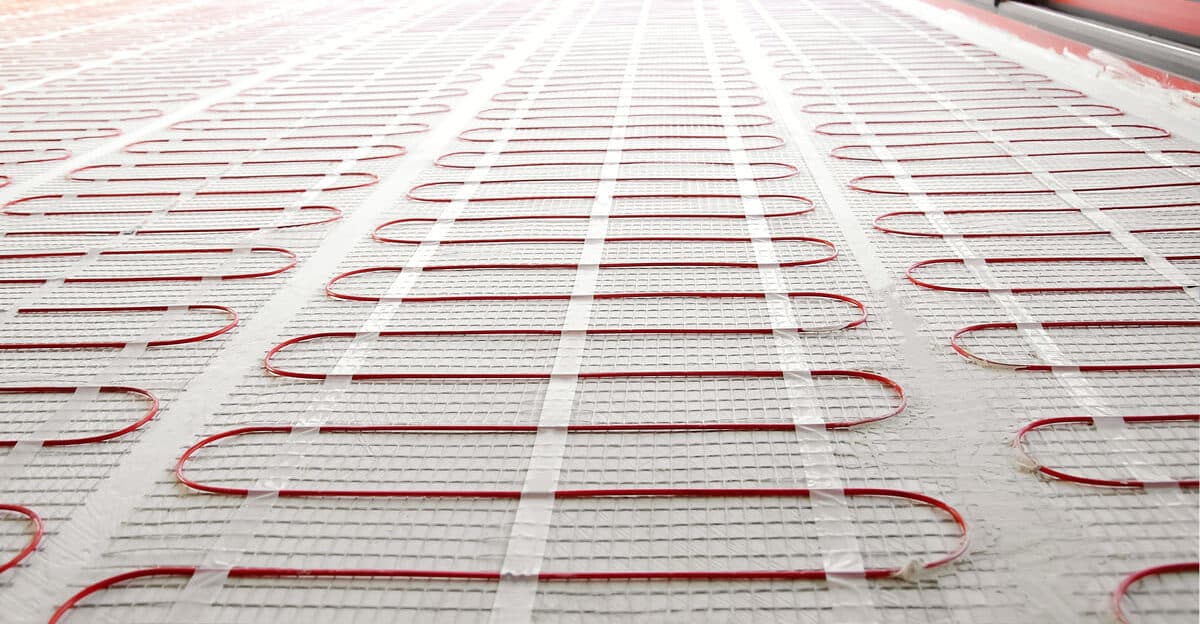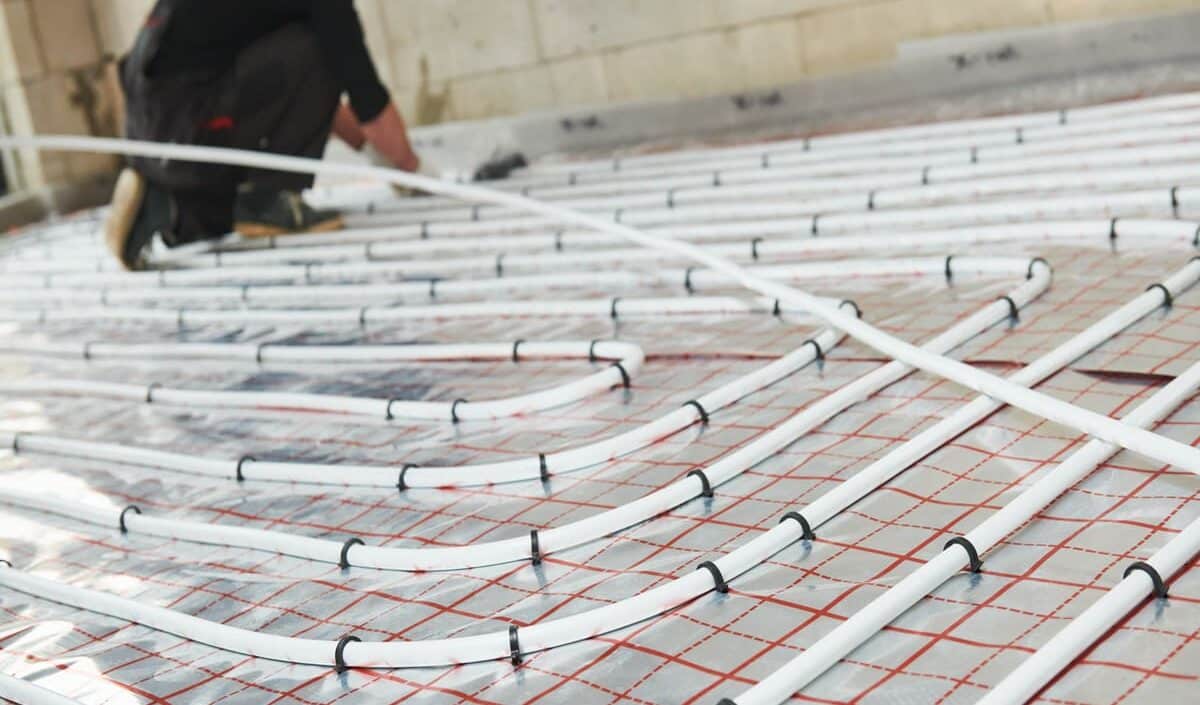

When deciding on the best underfloor heating system for your dining room, there are two main options to consider – electric and wet systems. Electric underfloor heating is typically more suitable for smaller areas, such as a living room or bedroom. It uses low-voltage cables that heat up quickly when powered, providing a steady and even temperature throughout the area. Wet systems are better suited to larger spaces, as they have a primary heat source like a boiler which can provide more energy than an electric system. They also work at lower temperatures than electric systems, making them perfect for maintaining a comfortable dining room environment without using too much energy.
Electric underfloor heating systems are a great option for those looking to heat one room or as part of a larger renovation project. They offer an easy installation and relatively low running costs compared to other heating solutions. Electric underfloor heating is available in two types: in-screed and above-screed systems. The in-screed system involves laying cables between two layers of concrete or screed, whilst the above-screed system lays the cables directly on top of an insulation board before being covered with your chosen floor finish. Both systems provide effective and efficient heating for your home at a competitive price.
Wet underfloor heating systems are an ideal solution for quickly and efficiently heating large spaces, such as dining rooms. They are a primary source of heat and can be powered by radiators or boilers, depending on the size of the room and the floor area to be heated. Boilers provide more efficient heat transfer than radiators, so if your dining room is large it’s worth considering investing in a boiler system. To get an exact price for installing wet underfloor heating in your dining room you should consult a professional installer.
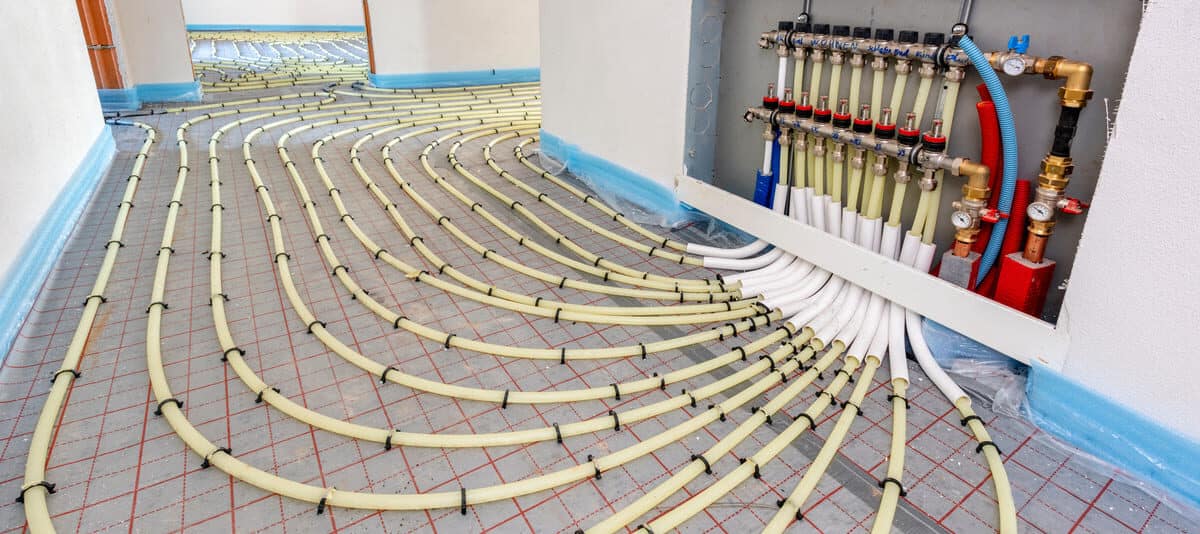
Underfloor heating is a great way to keep your dining room warm and inviting, but it’s important to consider the type of floor covering you use. Different floor coverings provide different levels of heat transfer, so it’s important to choose one that will heat up the whole room evenly. At the design stage, making a smart choice can ensure maximum comfort throughout the lifetime of your system. For instance, hardwood floors are an ideal choice as they absorb heat quickly and provide good insulation. Carpeting should also be considered, as it provides excellent insulation while still allowing heat to pass through easily.
Installing an underfloor heating system in a dining room requires following certain building regulations. Many homeowners who are constructing new build projects prefer to install underfloor heating instead of radiators. It’s important that the system is installed correctly, so that you don’t end up feeling chilly when sitting in your dining space. Insulation should also be installed properly as this will help keep the heat in and make your system more efficient. Make sure you check with your local authorities before starting any project.
We Are Also Available to Offer Heat Pumps Related Advice
To find out more about our services, get free quotations, or arrange an appointment, call this number 0204 586 6171.
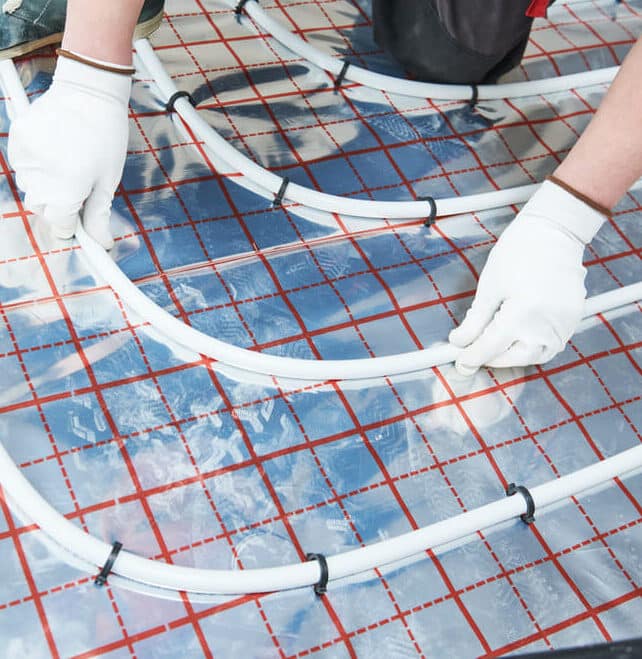
The cost of installing a dining room underfloor heating system can vary depending on the type of system you choose, the size and shape of your room, and any special requirements that need to be taken into account. Electric underfloor heating systems are usually more expensive than wet systems but offer greater energy efficiency and can be installed over many types of flooring, including laminate and wood floors. The total cost will also depend on how much insulation is required to ensure that your home is as warm and energy efficient as possible.
Running an underfloor heating system in your dining room requires regular maintenance and cleaning. You must ensure that the temperature settings are appropriate for the type of floor covering you have, such as carpet or tile, as this will affect the efficiency of the system. When installing underfloor heating in a new build, make sure that it is suitable for cold temperatures so it won’t overheat your dining room. The best way to maintain your underfloor heating is to keep it clean and check the thermostat regularly to make sure it’s working correctly.
When installing underfloor heating in your dining room, it is important to choose the right thermostat for your system. The most popular types of thermostats are programmable, non-programmable, and wireless. Programmable thermostats allow homeowners to set temperature control to match their lifestyle, while non-programmable ones provide accurate temperature control at all times. Insulated tiles or bathroom mats are a great option when it comes to heated floors in dining rooms as they help retain heat and keep costs down. With accurate temperature control, you can ensure that your family will enjoy a warm and comfortable dining experience with radiant heat beneath their feet.
There are several steps you can take to make sure your underfloor heating system is running as efficiently as possible. Installing quality insulation boards in the floor of your dining room will help retain heat and reduce energy costs. You should also insulate any exposed pipes to prevent heat loss, and consider using a timer so that you can ensure the system isn’t running when it’s not needed. It’s important to regularly maintain and operate the system correctly, and installing energy-efficient appliances can also help keep energy bills low. With these simple steps, you’ll be able to enjoy the full benefits of an underfloor heating system in your dining room.

High-quality insulation boards are essential for improving the efficiency of an underfloor heating system. The right type of insulation board can keep the warmth in and reduce energy costs, while ensuring that your floors remain warm throughout your house. There are a few different types of boards available, such as laminate, tile, or stone – each with its own benefits and drawbacks. When selecting which board to use, it is important to consider factors such as the type of flooring you have and the room’s size. Laminate boards provide great thermal insulation and durability at a reasonable cost; however, they cannot be used on uneven surfaces.
Mittens Underfloor Heating London are the perfect choice for a professional, efficient and reliable dining room underfloor heating installation. Our experienced team of professionals understand that each home is different and will work with you to find the most suitable system for your property, whether it’s an existing or new build. We use only the highest quality products, ensuring that your carpet or flooring is kept warm and comfortable even in cold weather. With expert advice on insulation, we can ensure your underfloor heating is as efficient as possible so you can enjoy a cosy dining room all year round.
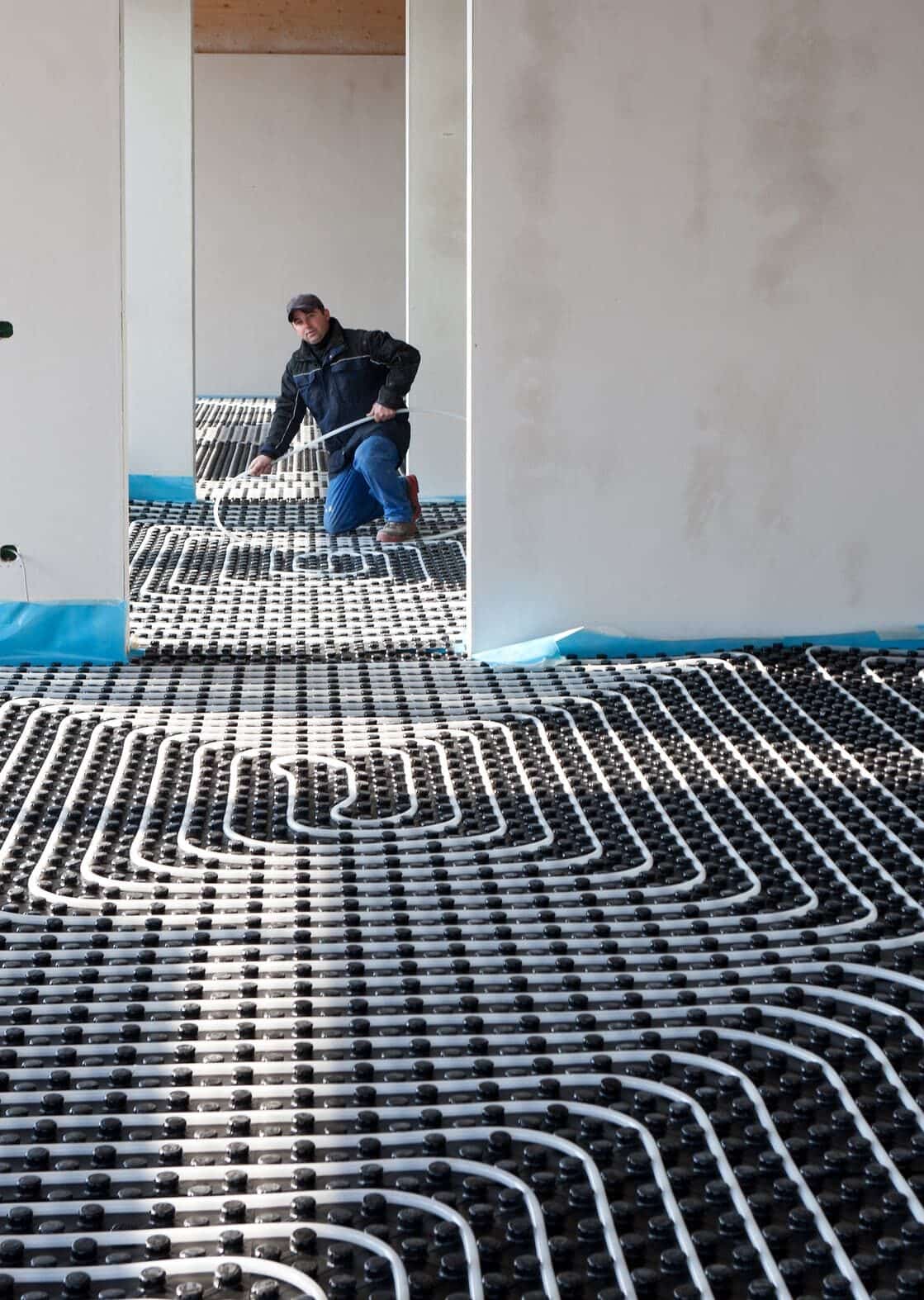
Mittens UFH London offers a variety of dining room underfloor heating options, including electric and water-based systems.
No, you do not need a special boiler for the dining room underfloor heating with Mittens UFH London.
Mittens UFH London’s dining room underfloor heating typically takes 30-60 minutes to warm up.
Yes, Mittens UFH London can provide heated floors that will heat your whole dining room.
You can have any type of flooring in your dining room with underfloor heating from Mittens UFH London.
The best place to put your underfloor heating thermostat in your dining room is near the door, according to Mittens UFH London.
Yes, dining room underfloor heating systems from Mittens UFH London can be easily repaired.
Installing dining room underfloor heating with Mittens UFH London typically costs between £1,000 and £3,500.
The running cost of a dining room underfloor heating system from Mittens UFH London will depend on the size and type of system installed, and the amount of heating wire or pipe.
Yes, underfloor heating from Mittens UFH London is usually more cost-effective than radiators. It can run at a lower temperature because an UFH system can heat the whole floor and so create even heat.
The expected lifespan of dining room underfloor heating from Mittens UFH London is 10-15 years. Some brands offer a lifetime warranty.

